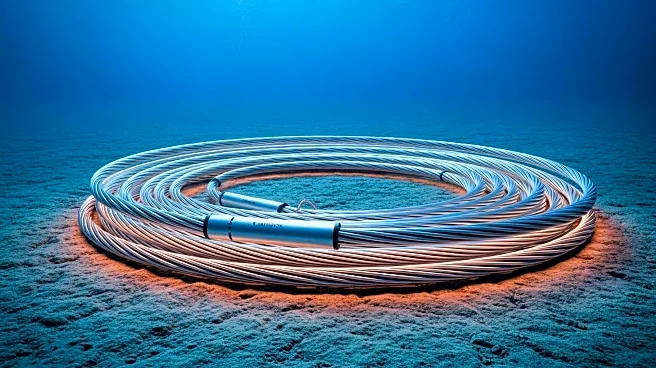What's Happening?
European prosecutors have launched an investigation into possible criminal offenses related to a €1.9 billion EU-financed project aimed at constructing a subsea electric cable linking Europe to the eastern Mediterranean. The project, known as the Great Sea Interconnector, is managed by the Greek power grid operator IPTO and seeks to connect European and Cypriot transmission networks, with plans to extend to Israel. Despite Greece's reaffirmation of commitment to the project, it has faced multiple delays and concerns over its cost and viability. The European Public Prosecutor's Office confirmed the ongoing investigation but withheld further details to protect the inquiry's outcome.
Why It's Important?
The investigation into the Mediterranean subsea cable project underscores the complexities and challenges associated with large-scale infrastructure initiatives, particularly those involving multiple countries and significant financial investments. The outcome of this inquiry could have implications for future EU-funded projects, potentially affecting funding allocations and project management practices. Additionally, the investigation highlights the geopolitical sensitivities surrounding energy infrastructure in the region, which could influence diplomatic relations and energy policies among involved nations.
What's Next?
As the investigation progresses, stakeholders including the EU, Greece, Cyprus, and Israel will be closely monitoring developments. The findings could lead to changes in project management or funding strategies, impacting the project's timeline and scope. Depending on the investigation's outcome, there may be calls for increased transparency and accountability in EU-funded projects. The situation also presents an opportunity for involved parties to reassess and strengthen their collaborative efforts to ensure the project's successful completion.










